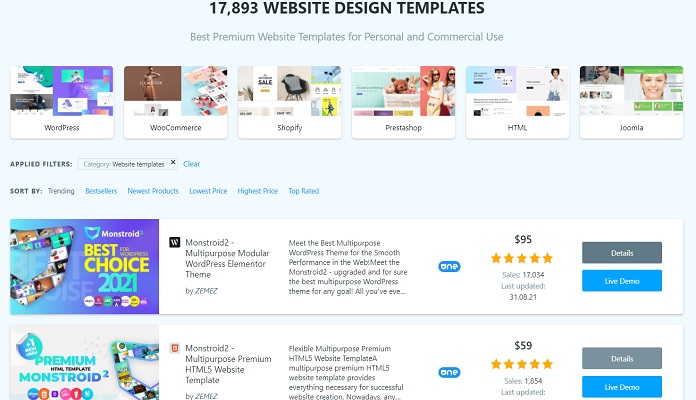How to Optimize Your WordPress Website
Talking about optimizing your WordPress website is never-ending. There are always old tricks to remind people about that are tried and true and new tricks to try for bumping your site up above the ranks of competition, if even just a smidge.
So what makes a website optimized anyways? Is it fast loading pages and exceptional user experience; or is it a secure and stable site that will hang tough through even the sneakiest hacker attacks?
Well, I am here to say it’s a little bit of both. And old or new, tips for optimizing your WordPress website should always be at the forefront of your backend maintenance efforts when it comes to your website.
You should honestly be able to sit back, read all of what I am about to share with you about optimizing your website for both speed and security, and say, “Yup, I am totally doing all of that and I feel confident my website is as good as it can be, for today at least.” Because after all, there is always going to be something new to try.
But for now, let’s take a look at what steps you can take to optimize your WordPress website in terms of speed and security so that you provide the best user experience possible and maintain a stable front against those trying to ruin more than just your day.
Optimizing for Speed
The time it takes your website to load for visitors will help determine how successful you will be. It should come as no surprise that if your website is slow, people are going to leave. No one has time for slow-loading web pages, and since there are hundreds, if not thousands of other similar websites just aching for attention, your visitors will have no problem going elsewhere. That could a problem. And one you should not be proud of.

Website speed and performance also affect how you are ranked in search engines. Slow websites are indexed lower, are seen less by those conducting searches, and often lose out on lots of organic traffic as a result.
With that in mind, let’s take a look at some of the most important things you can do right now to avoid all of that negativity.
Watch Your Plugins
Time and time again it is suggested by site speed experts that unused plugins are heavy and simply take up too much space on your server. Not to mention that poorly coded plugins make too many persistent calls to external servers causing unnecessary drag and posing many security risks to your website.
If you are not using a plugin, or another plugin that has a dual effect and can handle the job of two plugins, get rid of the loner! There is no reason to keep ineffective, useless plugins on your site. I promise it will not be mad if you break up with it.
It’s All About The Cache
Building a cacheable site is essential to delivering your site visitors a fast-loading website. Unfortunately, caching is one of those things that many people just float over without fully understanding because there is so much information about it. Here is the quick version for optimizing via caching:
Leverage Browser Caching
Your visitors can speed up their own experience by storing a cached copy of their favorite website locally. This will reduce the number of calls required to deliver your website’s information when accessed because the copy will be pulled from their local source instead of receiving fresh information from far away off of your server.
You can help your visitors out with this process by ‘leveraging browser caching’. This basically means you can determine the rules behind how long your website will be stored as a cached copy on your site visitor’s computer.
Use a Caching Plugin
By using a WordPress caching plugin on your website you are able to present static HTML files of your website to site visitors rather than the dynamic files that must be retrieved from your server time and time again. This will reduce the time it takes your pages to load by eliminating the PHP and MySQL commands that need executing when retrieving dynamic files. There are so many popular caching plugins on the market today. Some include WP Super Cache, W3 Total Cache, and WP Fastest Cache – all of which are free to use.
Enable a CDN
Another great way to reduce the loading time of your website is to use a Content Delivery Network (CDN). Rather than hosting all of your website’s information on one server located somewhere in the world, a CDN stores your website’s information on multiple servers scattered throughout the world. This way when someone accesses your website, the content is delivered via the closest geographical server for faster uploading. In addition, if one server goes down due to a security threat, your information will be safe because it is stored as a healthy version elsewhere.
Some of the best CDN providers on the market include MaxCDN, Amazon CloudFront, and Cloudflare. Some CDNs are free to use, some are included in particular managed-to-host plans, and some are standalone services.
Use a Responsive Theme
Displaying your website properly across all devices is important for user experience and site speed. A theme design with poor coding, excessive bloat, or lots of imagery throughout will weigh down your website and make for poor loading times, especially on small devices. Since search engines favor responsive websites, do your best to use a theme that caters to all devices, big or small.

This list could literally go on and on. You can also minimize files, compress images, find a good managed-to-host provider, empty your trash and reduce revision saves, enable Gzip compression, and more. But today we cannot forget the other half of the equation – website security.
Optimizing for Security
Hackers are always going to exist. They want to insert malicious code into your files and ruin your hard work, mess with your site indexing, access passwords, and files, infect other websites using yours and use bots to guess usernames and passwords so they can steal your personal information.
When your website gets invaded you can experience a whole host of issues:
- Your hosting provider could shut you down so as to not infect other websites that share a server with you.
- Search engines might block, blacklist, or deindex your site harming your chances of getting found and ruining your loyal followers’ experience with your website.
- You could get into legal trouble because hackers are conducting illegal business under your name and brand.
Luckily for you, there are some really great tips and tricks for securing your website that can be done very quickly and easily.
Secure Your Network
Usually, people are so concerned with what is happening directly on their website that they fail to take a look around at the bigger picture. Securing your network is something that must be done. Wouldn’t it be a shame if your friendly neighbor was actually a nasty hacker stealing your information because they were able to ‘borrow’ your Wi-Fi connection and hack right in?
Although it’s highly unlikely that your neighbor is stealing your WordPress website information right out from under you, and then inviting you over for a BBQ, the fact is it could happen. And it’s just not worth the risk. Have a Wi-Fi password in place and set up firewall and virus protection that you use frequently in order to protect yourself.
Stay Updated
Always use the most updated version of WordPress, your themes, and your plugins. When an update occurs new lines of code are often inserted adding extra protection against known security threats. You want to take advantage of that and not leave yourself open to those threats because you didn’t take the two seconds it takes to Update Now. Plus, updated software is often more optimized before which helps your site speed, performance, and ultimately the user experience.
Pay Attention to Usernames and Passwords
It is fairly obvious that using the username ‘Admin’ is a no-no. However, when it comes to passwords many people tend to lack in that department. Using a password generator will give you the strongest available passwords. Change it often. Don’t use the same password on other sites. Limit login attempts. Don’t provide ‘WordPress’ your username and password via email. Make it hard for hackers to get in.
Always Have a Backup
At any time your entire website, and all the hard work you have put into it, can come crashing down and be lost forever. By doing regular backups of not only your database but your entire website you limit the risk of losing everything.
Plus, it makes it easier to start fresh should a hacker attack actually work and cause you problems. This way, if the worst-case scenario plays out, and you have to start over with a fresh WordPress install, you at least have everything your loyal followers expect to have access to on a daily basis ready for upload. There are plenty of high-quality WordPress backup plugins you can use depending on your individual needs that offer easy restore options for times like this.
Final Thoughts
Optimizing your website for speed and security is no longer an option. With search engines placing so much importance on the speed of web pages, it is vital to your website’s success to have fast-loading web pages. Plus, protecting your website is just an obvious thing to want to do. No one wants to lose all the hard work that was put into creating a website that attracts visitors on a daily.
I hope today reinforced some of the things you should already know about website speed and security and encouraged you to take action if you had not quite gotten around to taking care of those things yet. I also hope there was something new for you to implement into your optimization efforts. After all, when you have mastered the tried and true tips and tricks, there is nothing left to do but learn and apply new things to make your website that much better. That is the only way to get a leg up on the competition and stay relevant.
Were you able to nod your head and confidently say “Yes I do all of that” to all of the optimization tips and tricks I mentioned? Or, did you learn something new that you had never thought of before that you are ready to try? I would love to hear all about it in the comments below!


